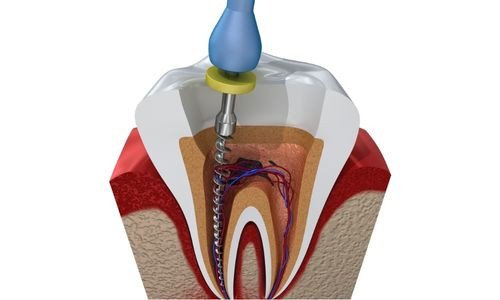
views
What is an Endodontist?
An endodontist is a specialized dentist who has received additional training and education in the areas of root canal therapy, diagnostics and treatment of dental trauma. Endodontists are experts in the diagnosis and treatment of diseases and injuries to the tooth pulp. This includes issues such as infection, abscesses, cracked teeth or traumatic injuries to the mouth. In order to become certified as an endodontist, an individual must complete at least two years of advanced study following dental school.
Root canals are one of the most common treatments performed by an endodontist. The procedure involves removing diseased or damaged pulp from within a tooth, cleaning out any infection or debris in the area and then filling and sealing it with a special material so that further damage does not occur.
Research: Gather Information
Root canals are a common procedure that can be performed by endodontists, specialists in root canal treatment. When selecting an endodontist for this dental procedure, it is important to do your research first. Researching potential endodontists may involve gathering information from a variety of sources.
First, ask your general dentist for recommendations on good endodontists in the area. They may know which practitioners have the most experience and training with root canal procedures. Additionally, search online reviews from current and former patients to get insight into whether or not they were satisfied with their experience. Many websites also offer detailed information about the qualifications and certifications of each practitioner so you can make sure they meet all necessary standards.
Ask Questions: Get to Know Your Provider
When you need a root canal, selecting the right endodontist is crucial. It’s important to feel comfortable with the professional you choose while also being confident that they can provide the best care. To ensure you’re making an informed decision, asking questions and getting to know your provider is key.
When meeting with an endodontist for a consultation, take the opportunity to ask them any questions or concerns you may have. Be sure to inquire about their experience in performing root canals, how many they have done, and what kind of technology they use in their practice. You should also find out what continuing education courses or seminars they have attended recently and if there are any additional services available that could help improve your overall oral health.
Location & Timing: Convenience Matters
The decision to have a root canal is an important one, and selecting the right endodontist is key. Convenience plays a major role in making sure the process runs smoothly. Location and timing are critical factors when it comes to finding an endodontist who can provide quality care without too much disruption of life's daily activities.
When choosing an endodontist, consider the proximity of their office to your home or workplace, as well as the availability of parking. Additionally, make sure they offer flexible hours that accommodate your schedule; most offices have extended evening and weekend hours for those who cannot take time off during regular business days. It’s also helpful if they provide same-day appointments so you don’t have to wait too long before receiving treatment.
Cost: Consider Insurance & Other Options
The decision to select an endodontist for a root canal procedure can be a daunting one. Cost is an important factor that should be taken into consideration when selecting the right endodontist for the job. It is essential to understand how your insurance can impact the cost of this procedure, as well as other payment options you may have available.
When it comes to selecting endodontics hertfordshire, it is important to read through your insurance plan carefully. Your dental coverage likely covers at least some portion of the cost of root canal procedures; however, specifics may vary from plan to plan. Speak with your insurance provider directly if you are uncertain what your coverage includes or any restrictions that apply. If you don’t have dental insurance, there are still alternatives that can help reduce costs such as flex spending plans and health savings accounts (HSAs).













Comments
0 comment